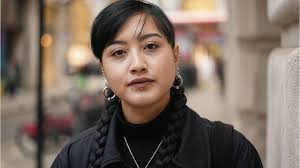Assume you’re in your teens or early twenties and discover you’re already in menopause. It wasn’t how Emma, Soe-Myat, and Elspeth had imagined their adolescence. Their diagnosis marked the beginning of a lonely journey to learn about a life event that all women will face as they age but rarely discuss.
On a humid August morning in 2013, a consultant flipped through Emma Delaney’s medical file and informed her that she was menopausal at the age of 25.
Emma sat motionless in the hard hospital chair, her thoughts flitting back and forth between what he was saying. Her periods, which hadn’t returned since she’d stopped taking the pill a few years before, were unlikely to return. It was unlikely she’d ever be able to conceive naturally.
“I didn’t know what to say… He told me, as if I’d misplaced my keys, that I couldn’t have children “she claims.
Emma is among the women affected by a condition known as Primary Ovarian Insufficiency (POI), which refers to any form of menopause occurring before the age of 40. Most of the time, no cause is known, and women with POI can experience menopausal symptoms until their 50s.
The condition affects about one in every 100 women in the UK, and experts believe it may be more common. However, it is an issue that is rarely discussed.







